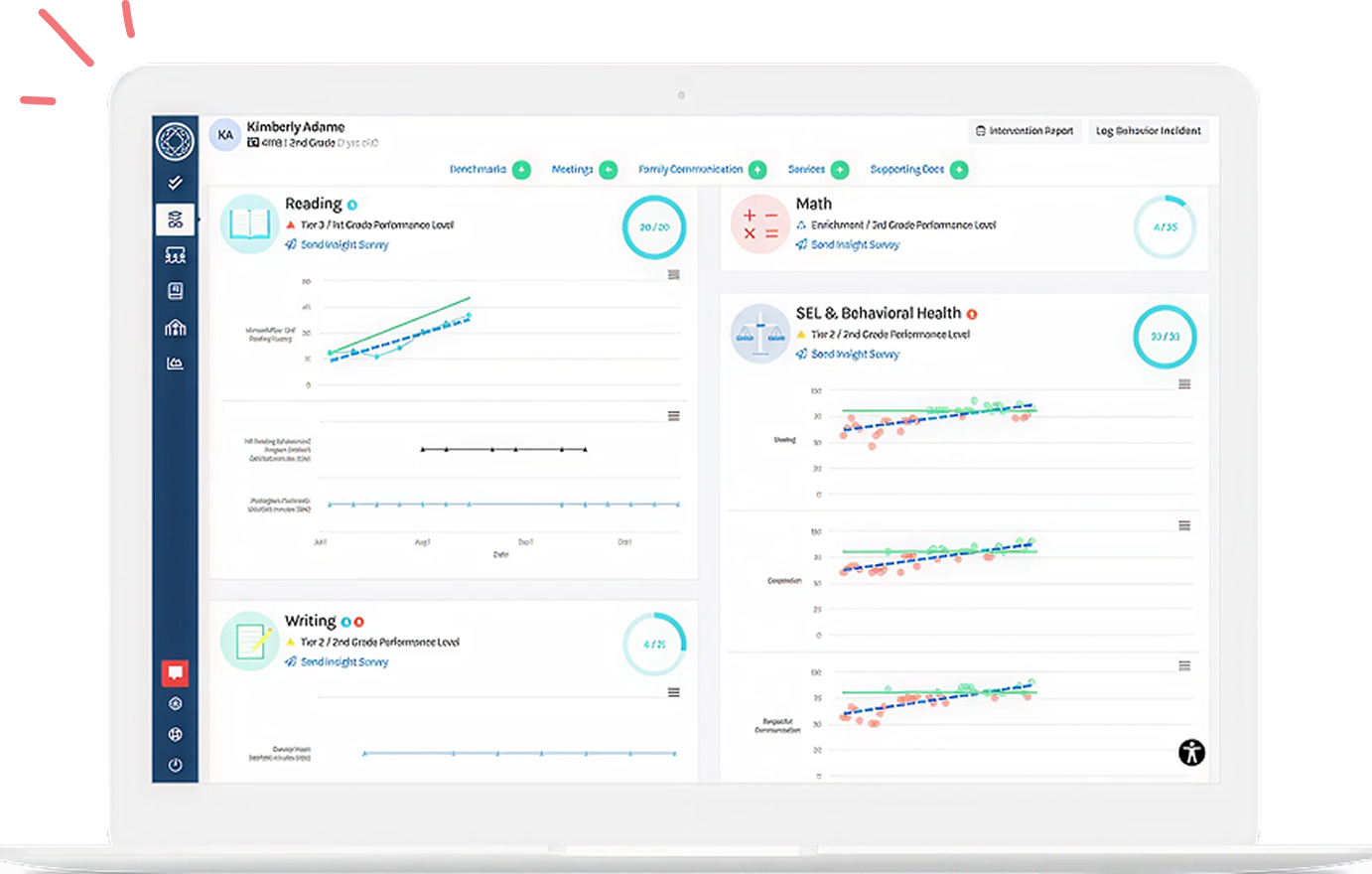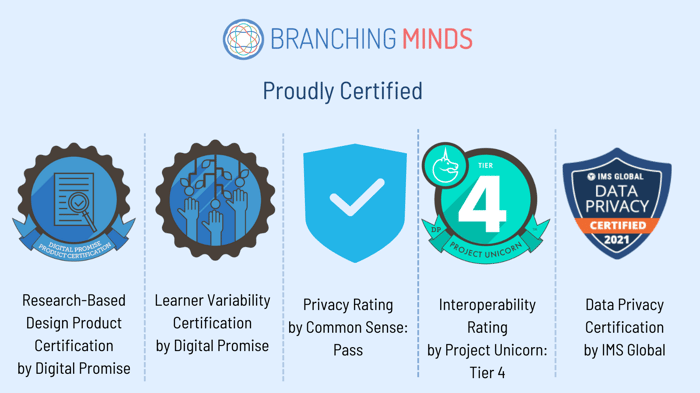The internet is full of digital tools, software, and programs specifically designed to support student learning. A quick Google search for a reading program will supply hundreds of links to programs promising “fast results” and “academic success.”
These digital tools, known as education technology (or edtech, for short), can help alleviate the workload of many education processes, such as data collection or assessment delivery. For example, an MTSS management software can help educators document interventions, track student assessment scores, identify students who need additional support, and measure system-level health.
But in an age of digital surplus, how can districts select edtech tools that they know will effectively support their students? How can they navigate what is marketing jargon and what is fact?
Product certifications are designed to meet the needs of district decision-makers. These certifications guide which digital tools are the best fit to meet the needs of a district’s population. Supplied by third parties, they are trusted sources of information that district leaders can use to navigate an abundant market. Let’s look at what these certifications are and how products meet the strict criteria.
What Are Product Certifications?
Product certifications are specific certifications granted to education technology providers by third-party evaluators. These certifications establish a protocol for quality standards across the industry and provide a framework of measurement for district leaders to review when evaluating products.
These certifications collect data to provide guidance on key areas to consider when selecting a new tool to support student education. These areas include:
- Interoperability: the secure and controlled exchange of data between systems
- Privacy: the privacy policies of software providers in protecting student data
- Digital Pedagogy: the support of digital learning skills, capacities, and knowledge
- Research and Evidence: the examination of how different digital tools will meet the needs of educators and students across contexts
- Usability: the measure of the user experience and how easily a product can be used to meet goals
- Accessibility: the measure of the accessibility of the product for individuals with learning difficulties, visual impairments, auditory impairments, or neurological and physical disabilities
How Do EdTech Providers Receive Product Certifications?
Depending on the certification provider, the certification process may look slightly different. For each certificate, education technology providers are held up to a strict standard of review and accountability to meet the new certification criteria.
For example, Digital Promise requires all product providers seeking to earn a certification to submit the necessary evidence for their review panel that demonstrates that their product has met the certification’s criteria. Upon submission, this evidence is reviewed by the research teams. If the evidence shows that the product meets the criteria, they are issued the associated product certification. These certifications appear as badges on product pages, in product indexes, and in product catalogs.
This rigorous process ensures that edtech tools are held to a quality control standard that district leaders can use to evaluate similar products.
|
LEARN MORE from experts and EdLeaders Check out this On-Demand Webinar with Vic Vuchic, Chief Strategy Officer at Digital Promise, and Dr. Ann White, Associate Superintendent for Student Services at the Charlotte-Mecklenburg School District Quality Control: Why EdTech Product Certifications Should Matter to District Leaders
|
How Can Education Leaders Use Product Certifications When Selecting New Edtech Tools?
During the review process to select which products to use to support student outcomes, product certifications can provide essential insight into the research and quality of digital products. While many products will supply case studies and white papers to advocate for the effectiveness of their product, a third-party evaluating party allows for a consistent comparison framework.
When selecting an edtech tool, it is essential to include input from all stakeholders interacting with the product, including classroom teachers and school-based administrators. During this review process, selection committees need to determine which certifications are required to meet their student population's needs.
It’s important to note that these certifications go beyond privacy checks. These certifications also include insight into the research backing a product and the suitability of a product for a diverse population of students. These research-based certifications dive into the process that went into the creation of the product, which may not be communicated in a white paper or marketing material (or for educators who simply don’t have the time to read through all the research of every product). Research-based product certifications establish a universal understanding of what “research-based” means when applied to edtech tools.
Product Certifications and MTSS
While this conversation focuses on the importance of product certifications when selecting any edtech tools, these certifications play an important role when selecting software to support a Multi-Tiered System of Supports (MTSS). MTSS is a system-level framework to support a continuous problem-solving process that provides targeted and proactive support for all students.
To facilitate this framework, educators need access to tools that enable effective collaboration, clear data collection, and intervention guidance. An MTSS management software can provide a platform to collect this data and streamline the MTSS workflow. Product certifications can help clarify and guide MTSS tools to meet this criterion and facilitate MTSS processes. When selecting a tool to support MTSS, look for a platform that:
- Supports learner variability
- Is user-friendly
- Increases transparency between systems and stakeholders
- Streamlines data flow
- Protects student data
- Supports data analysis
- Guides MTSS decision-making
|
➡️ Check out our product certifications ➡️ The MTSS solution for supporting students collaboratively and effectively |
![[Guest Author] Mollie Breese-avatar](https://www.branchingminds.com/hs-fs/hubfs/Team/Mollie%20Breese%20Headshot-1-1-2-1.jpeg?width=82&height=82&name=Mollie%20Breese%20Headshot-1-1-2-1.jpeg)
About the author
[Guest Author] Mollie Breese
Mollie Breese is the former Content Manager at Branching Minds. She helped streamline the support library, so schools can identify and access the interventions they need to support student success. She researched the newest strategies, activities, and programs to add to the robust library, providing a wealth of resources for partner schools. Prior to joining Branching Minds, Mollie worked in the classroom as an English teacher, Reading teacher, and ESL instructor. Mollie earned her B.A. in Political Science from the University of Missouri, and her M.A. in English Literature from the University of Glasgow.

Your MTSS Transformation Starts Here
Enhance your MTSS process. Book a Branching Minds demo today.

















.png?width=716&height=522&name=Tech-Learning-Most-Influential-Edtech-Product-2025(preview).png)
